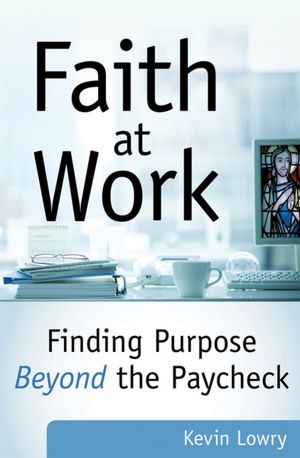 When faced with an opportunity to fundamentally change your life, will you take it? Many of us want to answer this question with a resounding “yes,” but may think that reality is not attainable. Not necessarily so. Consider the possibility that the current recession may be providing the catalyst for meaningful lessons and positive life changes to people all around you.
When faced with an opportunity to fundamentally change your life, will you take it? Many of us want to answer this question with a resounding “yes,” but may think that reality is not attainable. Not necessarily so. Consider the possibility that the current recession may be providing the catalyst for meaningful lessons and positive life changes to people all around you.
In my profession I meet dozens of business people every month, many of whom are professionals in transition. My interviews often take the form of an informal dialogue where I invite the job candidate to share not only work experiences, but also how they are feeling and coping with being out of work. The feedback has been illuminating. There are striking similarities in the challenges this group faces after they leave their jobs which fall into three distinct categories: relevancy, validation and balance.
Uncovering the benefits of these three areas now can benefit your work and entire life for the long term. Life challenges have a way of forcing much needed self discovery and what you learn can change your life. Now is the time to do it … we won’t be in a recession forever, and your focus will be shifted elsewhere again. Here are some ways to do that.
Relevancy
The upside: It’s never too late to start. It is a daunting new world for the job seeker today. As if the shock of losing a job is not enough, many candidates quickly learn that they have lost some degree of relevancy while plugging away at their former jobs. They have neglected to maintain a network inside as well as outside their places of business. The latest online social networking tools are a mystery. Paradigm shifts in how to effectively reach prospective hiring managers are vastly different from the last time they were on the job market and many have not remained on the leading edge of their industry.
So, why is this important? Long tenures at companies are becoming a rarity. It is likely that you will experience multiple job changes over your career and you need to be prepared for that eventuality. Staying well networked in and out of your organization is critical. Just as important is the need to stay on top of new trends not only in your industry, but in the marketplace in general. The vast majority of job candidates I meet spend the first few months of searching in a steep learning curve attempting to become current and trying to frantically build personal and professional networks they should have been nurturing along the way.
The challenge of staying relevant is not necessarily generational. This issue affects everyone from recent college grads to seasoned professionals. Regardless of your position or years of experience, begin thinking beyond the silo of your current position (or next one) and make a commitment to be well networked, well versed on industry and market trends, and above all, relevant when you find yourself in career transition.
Ideas for staying Relevant:
- Build and maintain relationships by having coffee or lunch once a week with someone outside your organization. Do the same with colleagues inside your company.
- Make your personal and career development a priority. Read books and take courses relevant for your industry and for achieving your personal goals. Attend seminars, workshops, networking events, etc.
- Utilize social networking tools like LinkedIn, FaceBook and Twitter to manage what should be an ever expanding network. Be visible!
Validation
The upside: There are healthier ways to feel good about yourself! Your boss says you’re doing a good job. Clients thank you for delivering great service. Friends in the office tell you they respect your strong work ethic. You are respected in the community and appreciated at home as the person who has it all: great job, wonderful family, strong commitment to stewardship and work/life balance. Each and every day carries with it some form of validation which is directly connected to your self-worth. Then you lose your job …
This loss of personal validation is rarely written about, but often comes up in my discussions with candidates who have been out of work a month or more. At this point reality has set in and often self worth begins to be adversely affected. The hard lessons of a job loss force many to confront this uncomfortable reality, but there is hope.
Consider these alternate means of validation: “I love you, Dad,” “Thanks for coming to my game Mom, it means a lot to have you here,” “I am grateful for your candid advice and appreciate your friendship,” or “I really appreciate you helping out with the school play—we couldn’t have done this without you.” You get the picture. The validation coming from family, friends and your local community can be much more meaningful. Your job should not define who you are … you don’t want people to remember you with: “He sure had a great career!”
In a recent discussion with Brandon Smith, a founding principal with Core Growth Partners (www.coregrowthpartners.com), he suggested overcoming the challenge of loss of validation through the lens of finding one’s purpose. He offered this insight: “Perhaps the greatest antidote to the struggle job seekers face today with validation is purpose. Purpose connects us to the needs we are ultimately trying to meet in the world, either through our job or beyond. Purpose is critical in these times because it gives us a way to proactively make sense out of the world and see how the world needs us today more than ever.
What a different orientation than most job seekers currently take. Rather than waiting to be seen for the value one brings, when we have a sense of purpose and lead with that during these times, it can allow us to approach companies and tell them how we can help them overcome their struggles today. It can also provide us a channel through which to get validation.” In other words, pursue your passion in your next job and not just a means of making a living.
Ideas for regaining (healthy) Validation:
- Don’t let your work define who you are. If you could write the story of your life, think about how you would make it full of family and friends whose lives you positively impacted.
- Brandon Smith offered this idea: “Consider your purpose. What need are you trying to meet today in the world? How might companies need you today more than ever? Consider using this to reframe your orientation and your approach to the job search.”
- Pay it forward. Make the effort to help others during your search. Offer candid advice, help with networking, be a good listener.
Balance
The upside: You can rediscover what you should be working for. The most profound difference for many of the job seekers is the re-discovery of the joys of family. They are able to spend quality time with children and get reacquainted. The former drudgery of a heavy travel schedule is transformed into taking the kids to school and relishing every school activity and event. Reconnecting to spouses and reinvigorated marriages are often a result of this job hiatus as couples who only saw each other on weekends are actually required to communicate on a daily basis. Many speak of a newfound sense of community and others talk of a deeper relationship with God. Often, people are finding the personal time they always needed (and never had) to get in shape through exercise and better eating habits. Their lives are coming into balance for maybe the first time in years.
Peter Bregman, CEO of a global leadership and change management consulting firm, recently wrote an article for Harvard Business Review titled, “Need to Find a Job? Stop Looking So Hard.” He suggests: “If you’re passionate about what you’re doing, and you’re doing it with other people who are passionate about what they’re doing, then chances are the work you eventually find will be more in line with the stuff you love to do. And then your life changes.”
To be sure, there are significant stresses during a job search, especially financial pressures to find a new job quickly. But, this respite from the storm is allowing a pendulum swing in a positive direction that many candidates are utilizing as a catalyst to pursue a career and life change. As they look for new jobs, they are intentionally focusing on roles that allow for greater work/life balance and less travel. Climbing the corporate ladder is increasingly taking a backseat to the pursuit of the more fulfilling roles as well rounded husbands and wives/fathers and mothers.
As Brandon shared, pursuit of your purpose is important. In that context, ask yourself if your work exists to serve your family or if your family exists to serve your work. I have often faced that question in my career and am not always proud of the answer. My interactions with people in career transition tell me that the majority wrestle with this problem as well.
Ideas for achieving balance:
- We spend most of our lives at work, but it shouldn’t consume most of our lives. Be more intentional in your next job. Make different priorities that will help you achieve balance. For example: a) be home for dinner every night, b) have a new “show up agenda” and attend the kid’s activities, c) make time for me—exercise, reading, friends, and d) make date nights and better communication with my spouse a priority.
- Ask your family and friends to hold you accountable in your pursuit of balance. Get feedback on a frequent basis on how you are doing with balance.
- Ask yourself from time to time if your work is serving your family and a higher purpose or is it the other way around. It is easy to get lost in the day to day, so course corrections will be needed.
To conclude, I realize I haven’t addressed every challenge job seekers face today, nor was that the intent. I simply wanted to share what I have learned from others who may be in similar situations and address the issues they are struggling with both personally and professionally. I encourage us to at least consider the positives that can come from all of this and look at new ways to overcome these difficult times.
Our jobs place enormous demands on our time and will consume us if we are not careful. But good things can come of it. Dean Harbry, Managing Partner and Coach with Trove Inc. (www.troveinc.com), a professional coaching and leadership development organization offers: “I have observed a common thread with my displaced clients. They are asking the question, ‘What is my purpose, and how can I find a way to live that purpose in my next job?’ Times of transition can be more helpful than you realize as you spend time with family, dig deep on what truly motivates you, and validate that notion through the feedback of those around you. Your spouse, children and close friends have a superior vantage point to help you make the next step into more meaningful work.”
As you pursue the next job in your career, think about these lessons and be more intentional about staying relevant, seeking healthier validation and leading a more balanced life. Self-discovery can be a little scary, but I hope what I have shared in this article will inspire you and prepare you for the next phase of your life journey. We all need to make a living, but we need to live while we are working. We would all love a second chance to “get it right.” Maybe this is yours.
If you liked this article, click on “Recommend” to share with your Facebook network. And please share your thoughts on this article by submitting your comments below. – The Editors














